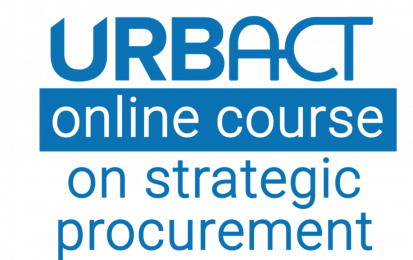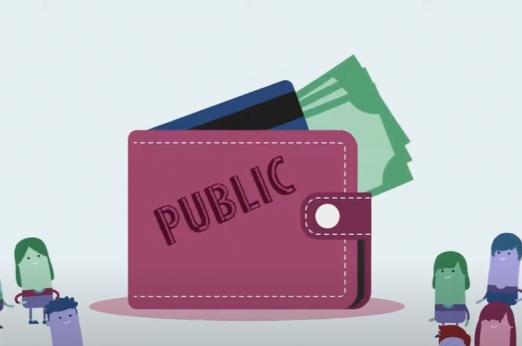Buying a better future
The URBACT Knowledge Hub brings together good practices from across the EU, with the latest urban trends, to fill the gaps and make sure that the learning is within everyone's reach. At URBACT we see procurement as a strategic lever that cities can use to address the economic, social and environmental challenges they face. Building on the experience of URBACT networks, we developed a wealth of resources on strategic procurement, including a free online course targeted at anyone with an interest in procurement and changing the way it is undertaken in cities.
- Local economy
- Social cohesion

Summary
Video tutorials: Public Procurement for Food
Public procurement is the process used by municipalities and other institutions to buy goods, services and works which enable them to deliver their activities. At URBACT we see procurement as a strategic lever that cities can use to address the economic, social and environmental challenges they face. We think procurement could be used to create jobs and apprenticeships, to develop workers skills and reduce carbon emissions. We call this strategic procurement.
URBACT's support for better procurement strategies
Back in 2015, the work of the PROCURE Action Planning Network paved the way for a future generation of URBACT cities eager to enhance their procurement processes. The core learning from the network was that procurement has to be viewed as a cycle: the Cycle of Procurement. In 2018, the Making Spend Matter Transfer Network started working on transferring one of the key steps of the cycle, called Spend Analysis, across EU seven cities.
Most recently, the CO4CITIES innovation transfer pilot, the Cities4CSR Action Planning Network and the BioCanteens#2 Transfer Network have concluded their activities in 2022. All these projects have also contributed to the reflections of how cities can leverage public procurement at local level. Today, the GenProcure Action Planning Network is exploring how cities can further develop gender-responsive processes.
Since 2017, URBACT and the City of Preston have been contributing to the Urban Agenda Partnership on Public Procurement pushing forward public procurement as a strategic driver to help public authorities solve challenges they are dealing with, be they social, economic or environmental. URBACT has co-developed the action Enabling Sustainable Economic Recovery through Public Procurement in the partnership's original action plan and the programme has continued its contribution until 2024.
At last, the programme supports cities in the EU and beyond with its tools, notably the
URBACT Online Course on Strategic Procurement, its thematic articles and segmented newsletter.
Online course
What is this course about?
Drawing upon the activities from previous networks, URBACT has developed a free online course to equip cities with the knowledge and tools required to embed social and environmental criteria into the process of public procurement and to progress strategic procurement.
Who is this course for?
The training is targeted at anyone with an interest in procurement and changing the way it is undertaken in cities. You could be a mayor or politician, a civil servant working in strategy or procurement department, or working in urban and economic development, or someone completely different and willing to learn!
How is this course structured?
Available on the URBACT Toolbox, the original course comprised 7 training modules and it was first released in 2021. Alongside city case studies, the training covered the procurement cycle. In 2022, in collaboration with EIGE, URBACT released 4 new transversal modules to raise awareness and help cities implement gender-responsive public procurement at local level.

URBACT Toolbox
Start now your free Online Course on Strategic Public Procurement journey
In the framework of the URBACT Knowledge Hub Strategic Procurement online course, new modules on gender-responsive public procurement have been released. Check them out now !
Continue your journey with the segmented modules of the course on Gender-responsive Public Procurement
Find out more about related topics at the
Gender Equal Cities Knowledge Hub
In the framework of the URBACT Knowledge Hub Strategic Procurement online course, new modules on gender-responsive public procurement have been released. Check them out now !
Thematic newsletter






